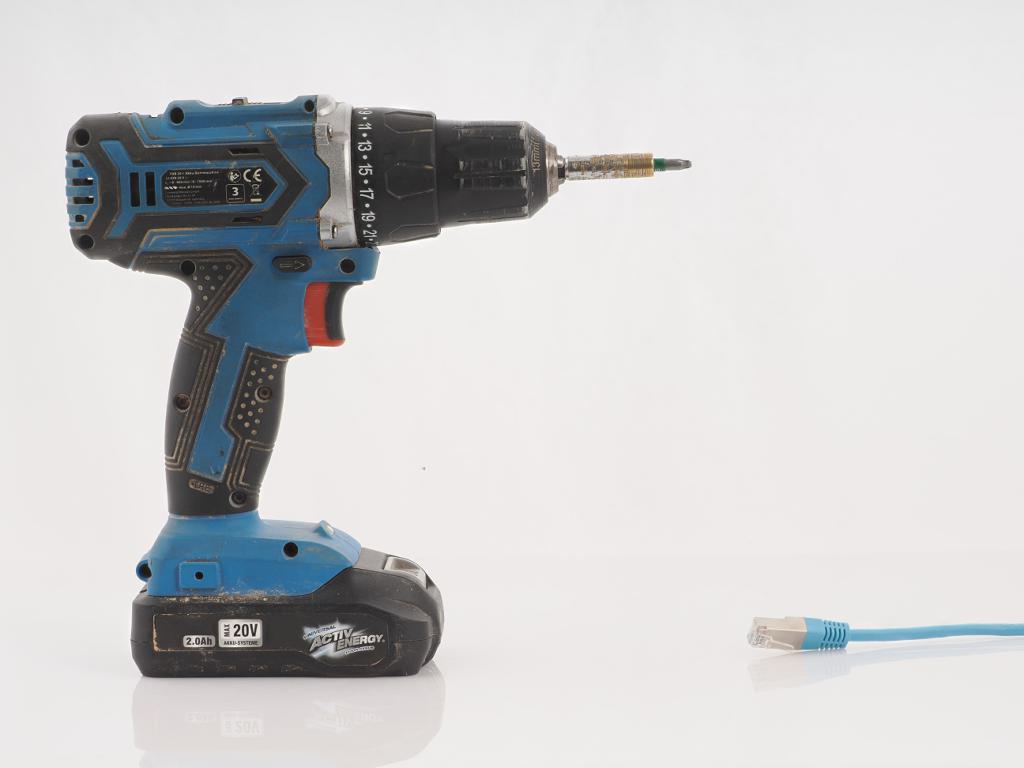
Cordless screwdrivers are incredibly practical. I couldn’t have done the renovation in Rocksdorf without cordless screwdrivers.
Cordless screwdrivers are also used for assembling cars and electronic equipment. The fact that you can set the torque with which the screw is tightened is particularly practical. When assembling circuit boards, the torque must not be too high, otherwise the circuit board will be under tension – and if it is too low, the screw may not make reliable contact. (If you are unlucky, the circuit board will then start to emit radio waves. This was annoying in the days of analogue radios….)
Because it’s so great, Bosch Rexroth offers the “Nexo wireless screwdriver“. You can set the torque via WLAN. And ask whether the guy who is supposed to be working with it is there – or just at the loo. In any case, unlike my Aldi device above, the screwdrivers are approved for “safety-critical screw connections in accordance with VDI/VDE 2862”. And they are so popular that they have a six-month delivery time.
One small problem: you can hack the central control console and then paralyse all the screwdrivers connected to it. A screwdriver strike, so to speak. (Paralysing anything is currently en voque – Bosch has found new ways to do this). Or, if you’re already hacking, you can, much more subtly, adjust the torques of the screwdrivers so that the “safety-critical screw connections” turn out to be somewhat critical for safety.
Well, they are already fixing the error. Should be ready by the end of January….
What can be hacked will be hacked.
Es ist eine Illusion, sichere, nicht hackbare Software zu erstellen. Es ist immer eine Frage der Zeit und manchmal sind es schlicht menschliche Faktoren, die eine Lücke auftun.
Wenn eine handvoll Sicherheitsspezialisten einer Armee von Hackern gegenüberstehen ist alleine das Ungleichgewicht der Ressourcen ein ernstes Problem.
Die meisten Systeme sind so konzipiert, dass sie korrekt verwendet gut und stabil funktionieren. Besonders, wenn beide Seiten einer Schnittstelle aus einer Hand kommen. Das Abfangen von unkorrekter Benutzung kostet oft erheblichen Aufwand und fällt daher der Kostenoptimierung zum Opfer. Die Aussage “es wird doch niemand sooo dumm sein, und … tun” muss man leider mit “ja, doch” beantworten. Das sind dann die Hintertüren der Hacker.
Ich halte es generell für ziemlichen Unfug, dass heute alles mit Elektrik drin auch gleich mit Internetanschluss versehen wird.
Unsere neue Waschmaschine hat so etwas auch. Ich habe es ausprobiert, das Koppeln war gar nicht so ohne. Dann konnte ich auf dem Handy sehen, wann die Wäsche fertig ist. Hat sich mit dem nächsten Update dann wieder entkoppelt. Geht jetzt auch wieder so, bei Programmende piept sie ohnehin. Fernbedienung ist bei einer Waschmaschine auch erst dann wichtig, wenn auch ein Roboter die Wäsche reinpackt. Sonst muss ich ohnehin zur Maschine gehen.
Die Möglichkeiten zum Datenabgreifen / zur Spionage wurden ja schon angesprochen. Hinzu kommt aber auch , dass gerade im Consumerbereich viele dieser Geräte unzureichend geschützt sind (bekannte Passwörter, keine updates …) und damit nur ein Einfallstor in das jeweilige Netz bieten.
Aber meistens funktionieren die Geräte ja (noch?) auch ohne Internetanschluss.